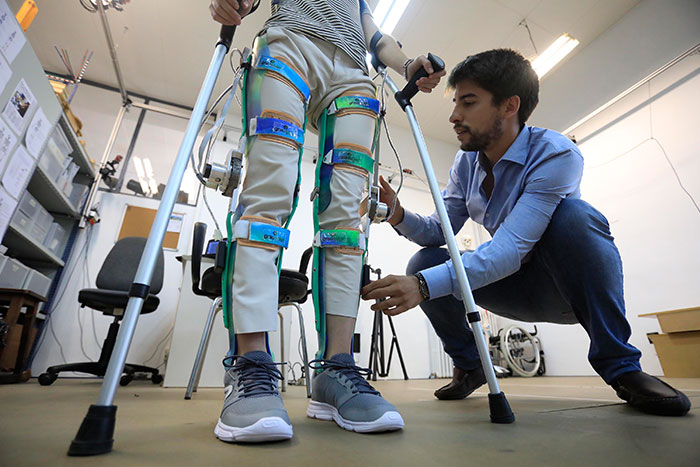
New technologies for the treatment and reuse of industrial wastewater
February 12, 2019
Exoskeletons that can reduce by 60% the muscle effort of employees in the automobile sector
February 14, 2019The Centre for Sensors, Instruments and Systems Development (CD6 UPC) is taking part in the Flexible Optical Injection Moulding of Optoelectronic Devices (FLOIM) project.The aim of FLOIM is to develop a new automated process for manufacturing optoelectronic devices (electronic devices that source, detect and control light) to produce integrated, miniaturised components.

One of the project’s innovations will be the use of thermoplastic injection techniques to manufacture optics and encapsulate the optoelectronic device simultaneously. The devices can be used in sectors such as information and communication, LED lighting, the photovoltaic industry and devices for flexible or curved screens, among others.
The proposed manufacture process will be innovative as it will be undertaken in one step: the optics will be manufactured by injection moulding and the optoelectronic device will be encapsulated simultaneously. The project also includes the development of an optical system for online inspection of the quality and functioning of devices, which will provide data for full traceability of the manufactured component.
CD6 UPC will coordinate tasks relating to the definition of optical requirements, the design of the thermoplastic injection process, its implementation in a pilot station and the design and implementation of the inspection system.
The consortium is comprised of 11 entities in addition to CD6 UPC, including companies and technology centres, and is led by Aimen Technology Centre.
The project is part of the H2020 programme, with a budget of 6.7 million euros and a duration of 42 months.
Related Projects
- A team from the Bioinspired Oral Biomaterials and Interfaces (BOBI) research group at the Department of Materials Science and Engineering (CEM) of the Universitat Politècnica de Catalunya - BarcelonaTech (UPC) is taking part in the European project HYDROHEAL, which explores how to transform bone fracture treatment using smart and advanced biomaterials, aiming to reduce the risk of infection and implant rejection, as well as shortening fracture recovery times.
- Neurodegenerative diseases, such as Parkinson's disease, Alzheimer's, and age-related disorders, have been widely studied due to their significant impact on individuals and society. So far, these are incurable and debilitating diseases that lead to progressive degeneration and death of nerve cells, resulting in cognitive and mobility impairments. Tremors, mainly at rest, slowness of movement (bradykinesia), limb rigidity, and issues with gait and balance are typical motor disorders related to Parkinson’s disease. Additionally, due to progressive muscle atrophy, these issues can lead to falls, which in turn result in further complications and risks to quality of life.
- The Biomaterials, Biomechanics, and Tissue Engineering (BBT) Research Group at the Institute for Health Research and Innovation (IRIS) of the Universitat Politècnica de Catalunya – BarcelonaTech (UPC) is leading DYNAMIC, a project aimed at creating multifunctional, stimuli-responsive biomaterials that not only promote bone regeneration but also intelligently and effectively combat bacterial infections.
- 30/09/2024Project Headerrightno-repeat;left top;;auto20px A team from the Centre for Research in Biomedical Engineering (CREB) of the UPC and Sant Joan de Déu has created a new […]




